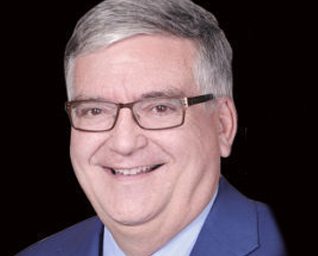
A platform that encourages healthy conversation, spiritual support, growth and fellowship

NOLACatholic Parenting Podcast
A natural progression of our weekly column in the Clarion Herald and blog

The best in Catholic news and inspiration - wherever you are!
It's misguided to chide church for following law
-

In my old J School days at Loyola University New Orleans, this would have been called a classic hit job.
Except, in this case, the story by The Associated Press, the country’s premier national news service, was its second bite at the apple, seven months apart.
The AP report earlier this month, following up on a July 2020 story, did more than hint at everything dark and sinister about the Catholic Church.
The spicy lede: “Scores of Roman Catholic dioceses in the U.S. had more than $10 billion in cash and other readily available funds when they received at least $1.5 billion from the nation’s emergency relief program for small businesses slammed by the coronavirus, an Associated Press investigation has found.”
For the unchurched and those predisposed to view the church through the lens of mendacity and rule-bending, Catholic dioceses, churches, schools, hospitals and other charitable agencies were wrong in seeking and then receiving emergency loans under the federal Payroll Protection Plan.
That PPP was included in the Coronavirus Aid, Relief and Economic Security (CARES) Act, which the House approved with a voice vote and the Senate passed unanimously.
In a nutshell, the AP argued the church had enough money to carry it through an economic tsunami and thus received too much in forgivable loans.
The church broke no laws, the AP acknowledged, but it got too much money considering it had plenty of money to spare for the rainy day that had just arrived.
When the pandemic broke last March, no one could have predicted the economic impact it would have on U.S. businesses and workers. Most states issued strict capacity guidelines on church attendance to keep the virus at bay, and a few states even prohibited in-church religious services altogether. With congregation sizes severely limited and Masses being canceled, contributions decreased dramatically.
Catholic schools that survive on tuition payments from parents – many of whom work two jobs to afford to send their children into a learning environment that is academically sound, spiritually rich and safe – became imperiled. How could a school stay open if parents, suddenly unemployed, could not pay tuition?
The Archdiocese of New Orleans, of course, had special concerns. It is working its way through a Chapter 11 financial reorganization, and it had to make sobering decisions, eliminating the jobs of dozens of church workers and even entire offices. None of the archdiocese’s administrative offices applied for PPP funding.
Even beyond New Orleans, those dioceses not faced with such financial pressures had to furlough or permanently lay off employees. Last summer, the Archdiocese of New York announced the closing of 20 schools. The teachers, administrators and staff members of these schools shared a mission that had nothing to do with money. They worked in Catholic schools, for substantially less money than they could have received in the public school system, because they believed in the importance of Catholic formation and education.
Those Catholic school teachers who lost their jobs suffered just as much as anyone in the public sector whose job vanished or was severely cut back.
The pandemic also slashed ancillary income of parishes and schools. Parish fairs – which serve as an important source of operating income – had to be canceled or transformed into virtual events.
Catholic schools incurred tremendous costs in making on-campus learning available to parents with young children so that parents could work while their children remained safe in school and benefited from a superior, on-campus experience. Those on-campus accommodations have been expensive, but the results in parental sanity and student achievement will far outweigh the costs.
The juggling act of Catholic school teachers is an example of heroic sainthood on par with our health care workers.
In its report last July, the AP claimed the Catholic Church profited from a “special and unprecedented exemption” it had lobbied for to “amass at least $1.4 billion in taxpayer-backed coronavirus aid, with millions going to dioceses that have paid huge settlements … because of clergy sexual abuse cover-ups.”
What the AP conveniently left out was that all religious groups – not just Catholics – benefited from that “special exemption.” And there was nothing in the law that prevented businesses that are being sued from collecting payroll protection money.
This financial crisis is far from over. If you are in a position to make an extra financial contribution to your parish, school or favorite Catholic ministry, please do so. That money will support a very important mission. Just don’t expect an AP headline.




